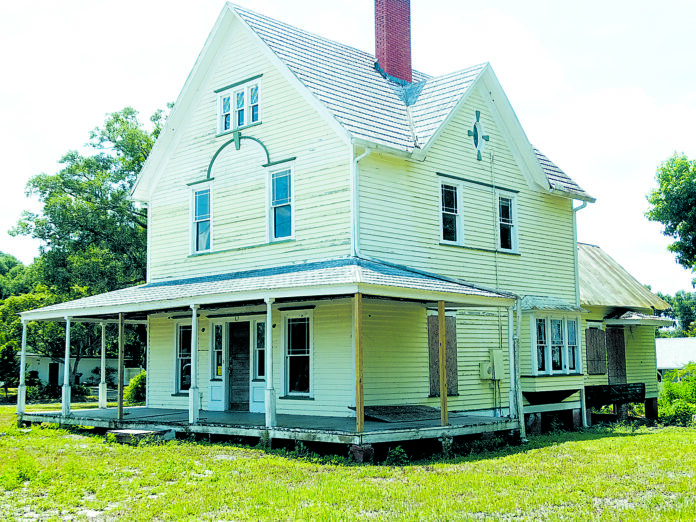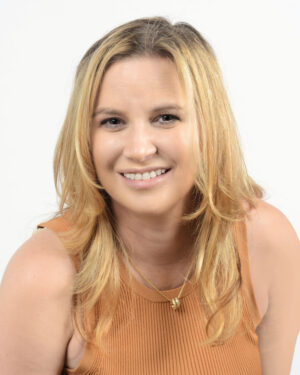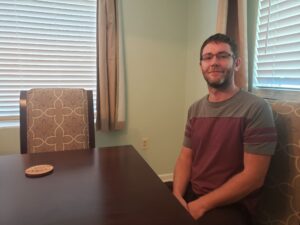
When DeLandite Katherine Russell started using drugs again after her husband died of an overdose, she fully expected to die. She was doing drugs with the intent to die.
“I was in so much pain, the drugs weren’t working, and I couldn’t get dying right,” Russell said. “All that was left was to get clean.”
That desperation, that brokenness, ultimately led Russell to a desire to give back and create an infrastructure to help others get clean and get on with their lives. She knew the challenges, and the pain, all too well.
Russell is creating a way out of addiction with Foundations to Freedom in DeLand. The organization has purchased six DeLand-area properties, which have a total of eight buildings, to develop mostly as halfway houses.
Finding a path to a new life
“A lot of sober living is, ‘Get clean, get a job, go to meetings,’ and that’s it,” Russell told The Beacon. “Substance abuse is a symptom, and once they put the drugs down, we try to find what that was that was making them feel they had to use drugs every day.”
Russell and her team of some 15 staffers are doing that with sober-living programs and wraparound services like career placement, health care assistance and more.
Russell went through several programs to try to break her addiction. She found them to be too hands-off.
“I know that for me, I needed more to sustain long-term recovery,” she said. “I was more broken than that.”
Russell has spent more than $2 million on property in and around DeLand, and has eight buildings to utilize for the organization. She’s had some challenges navigating the City of DeLand’s rules governing residences that house multiple unrelated people, and the opening of one of the houses prompted complaints from a neighbor, but she’s hopeful things will get easier moving forward.
Foundations to Freedom’s clients are referred by agencies like SMA Healthcare, law-enforcement agencies, drug courts and The Bridge homeless shelter in DeLand.
Once clients have gone through a detox program with another agency, like SMA, they come to Foundations to Freedom to start their journey of six to nine months toward recovery.
Clients are assigned to a halfway house with multiple roommates. Foundations to Freedom — which officially got off the ground in April — is currently operating two men’s houses and one house for women and children, totaling more than 20 beds.
Several of them are residential homes retrofitted with cameras and added security to turn them into halfway houses. A Foundations to Freedom staff member is present 24 hours a day. The homes are fully stocked with food and supplies and furnished, and residents help cook meals and work toward lives of self-sufficiency. Staff members also help transport residents to work and to recovery meetings.
Russell feels like the organization’s approach is getting through to the clients. Part of the recipe for success, she said, is the staff, nearly all of whom are recovering addicts themselves.
“I have been very lucky to have a staff who shares my mission,” Russell said. “I feel like with the team we have we can reach them.”
Russell has found camaraderie with other local organizations, like DeLand-based Rising Against All Odds and others that are working with addicts.
“They’re so excited to have another agency coming in on the west side,” Russell said.
Right now, much of the funding for the organization is coming from Russell and an angel investor she preferred to keep anonymous. Once Foundations to Freedom has proved itself, she said, she’s eager for her grant-writing team to fully sustain her dream.
Her journey
Russell, 38, has lived in DeLand since 1997. While she hasn’t always had it easy around here, she’s eager to give back to her community.

Her drug addiction began after she was in a car accident in 2008. She flipped an SUV on Interstate 4, she said, and was in a coma for two months. After several surgeries and while recovering from her coma, she said, she became addicted to painkillers.
Russell went from being a college graduate with a future in business to losing everything.
She went to prison in 2013, and when she got out, went through a program at The Neighborhood Center of West Volusia. The recovery didn’t stick, she said.
It wasn’t until her first husband died of an overdose in 2017 that she saw a way out. The two were high-school sweethearts at DeLand High School, and his death left her spiraling. The three-week drug binge that followed is what finally broke the vicious cycle she was caught in.
Five years later, Russell recognizes that recovery is a constant struggle. She goes to many recovery-group meetings alongside Foundations to Freedom residents.
“I will always be an addict,” Russell said. “I need to feed my soul, so when life dips, using doesn’t ever look like a good thing.”
The programs are especially important to her, she said, in light of how widespread drug addiction, especially to opioids like fentanyl, has become in recent years.
“I think it hits every family in America,” she said. “Every person knows someone battling addiction in some way.”
From 2019 to 2020, fentanyl overdoses in Volusia County rose by 75 percent. That figure continues to climb.
Russell’s own struggles with substance abuse shaped Foundations to Freedom’s programs — she wrote the programs, after all.
A good example is what happens when a client graduates. Clients who have completed the Foundations to Freedom program retain access to care for six months after leaving the halfway house. After that, alumni are welcome back to visit with clients and share the story of their own success.
Another example of the Foundations to Freedom ethos is in how meals are structured. Residents initially pay a monthly fee of between $160-$180 that covers rent, utilities, transportation, food and programming.
Once they have steady employment and are working their way through the program, residents are asked to contribute toward the food budget. But no matter where they are in the program, all of a house’s residents are expected to have dinner together — as long as they’re not working — every night.
Part of it is about making sure the residents get to know each other, but it’s also to ensure that no one goes hungry.
“Maybe it’s the Italian in me,” Russell said. “I wasn’t going to let that happen in my houses.”
The ‘lead guy’
Having only started their treatment programs in March, Foundations to Freedom’s first group of clients is still working their way through the phases of recovery. As of July 12, the halfway houses boasted 12 residents.
Thomas Netzel was Foundations to Freedom’s first client, and he’s three months into his journey.
Netzel realizes he’s sort of a guinea pig, but what Foundations to Freedom was offering is what he needed, he said.

THE LEAD GUY — Thomas Netzel, shown here, is Foundations to Freedom’s first client. He joined the program shortly after it began in April.
“I needed more structure; I knew I did,” he said.
Netzel, 35, came from Philadelphia. He has struggled with addiction since he was a teenager. Life on the streets of Philadelphia was hard, and certainly too cold. He made his way to Florida last year, and said he feels at home in DeLand.
Nowadays, Netzel works at 7-Eleven. Not long after being hired, Netzel said, he was promoted for his hard work.
As an outsider to DeLand and a gay man, Netzel worried that he would have a hard time fitting in. He also worried about one of the Foundations to Freedom requirements: finding a sponsor for his recovery — someone he had to find in the community, and share personal information with.
Netzel found everyone, from Foundations to Freedom staff to the people he has met in DeLand, to be accepting of him.
He’s learning a lot about himself, too, he said. Netzel had battled his addiction for so long that he hardly knew what his interests were when sober. He’s discovered that he likes cooking — it’s a practical skill, and there’s always a need for chefs.
Once he’s completed his recovery, Netzel hopes to pursue that interest at Daytona State College.
“I don’t want to live off of ramen diets anymore,” Netzel said.
Since he was the program’s first client, Netzel said, some of the other residents look up to him. They’ve even started referring to him as “the lead guy,” he said. As of July 18, Netzel had been drug-free for nearly 100 days.
He said he’s not sure he’s deserving of the praise, but he’s looking forward to a bright future beyond addiction.
After his recovery is complete, Netzel enjoys knowing he will still be a part of the Foundations to Freedom family. He’s looking forward to returning once he’s 10, 15, 20 years sober, so he can share his story with future clients.
“They want to see us succeed; they want to see us get better,” Netzel said. “It’s a great opportunity to start over.”
DeLand’s law
DeLand defines “family” for purposes of who can live together in a residence zoned for a single-family, as either:
- a “natural” family of one or more people related either by blood, marriage, law or adoption;
- a group of six or fewer people living together in a facility licensed by the Florida Department of Children and Family Services or otherwise licensed by Florida statute;
- or a group that includes a maximum of two unrelated persons, who may or may not be living with other family members in the household to whom they are related by blood, marriage, law or adoption.
Properties in DeLand purchased by Foundations to Freedom for the creation of halfway houses for residential addiction treatment:
The historic Stockton-Lindquist house at 244 E. Beresford Ave., which has not yet been developed for use
735 W. Wisconsin Ave., which is in use now as a residential treatment center for men
2320 Ninth Ave., which is in use now as a residential treatment center for men
A residential treatment center for women and their children, whose address is confidential
A complex of buildings at 339 and 347 E. New York Ave., where the organization’s administrative offices are currently located